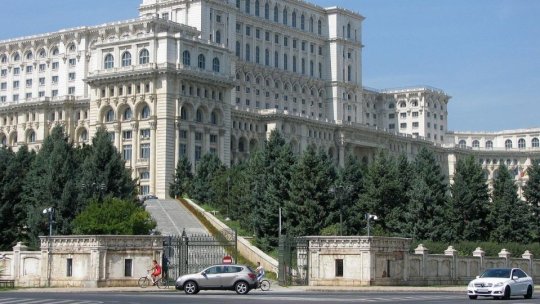Financial Press, January 11
Articles from the Ziarul Financiar, the Săptămâna Financiară and the Curierul Naţional.

Articol de Dinu Dragomirescu, 11 Ianuarie 2011, 19:43
The Ziarul Financiar comments upon the ‘surprise gift’ made the Ministry of Finance to the companies in Romania, both large and small, a week before they start the New Year: ‘a mammoth emergency ordinance with dozens of articles that make changes into the Tax Code from one end to another. ‘
‘On the one hand, the changes are welcome,’ for example the introduction into the Code and the regulations on social security contributions or the capping of the calculation base of the individual contributions.
‘A surprise is the return of the special regime of taxing the micro enterprises, which was abandoned in 2010.’ ‘In place your order: back to the special regime of the micro enterprises’, the newspaper headlines.
’The return of the micro enterprises’ is also the title of the first page article from the Săptămâna Financiară.
‘The individuals have a choice in what they prefer to pay until the 31st of January: 3 percent on income or 16 percent on profit’. ‘Great news: the wealth verification and taxation’, headlines the Ziarul Financiar.
‘The Tax Code does now show very rough intentions to tax the officially undeclared high incomes. The Tax Code speaks of a 50000 Lei threshold in order to apply the 16 percent tax, but there is no reference to any actual forfeiture or levy of execution to recover the amounts owed to the government, outlying the idea of some kind of a tax amnesty, unlike the tough regime practiced in some Western countries, along with the criminal sanctions.’
The Săptămâna Financiară dedicates an article to the Public Procurement Law, which ‘has been amended on Christmas Eve, published on the New Year’s Eve and was applicable on the New Year’s start.’
From January the 3rd, any authority, institution or public enterprise may grant without an auction public work contracts with a value up to 4.84 million euro: ‘the sum is nearly five times higher than in the old regulation.’ In addition, the value threshold for supply contracts has increased by 25 percent to 125000 euro.
Under the heading ‘County leaders – successful entrepreneurs on public money,’ the Săptămâna Financiară notes that ‘most of the prefects and chairmen of county councils fake correctness in the declarations of interests they have filled in at the end of 2010.’
While some have suspended their business activities or have passed them subtly on the names of their relatives of close friends, others have calmly filled the forms with the firms they are associates and the contracts signed on public money.’
‘Moreover, in order to dodge the public auctioning system, it was chosen the alternative of splitting the total sum of money into several contracts of low values, so that the purchases can be made by direct custody.’
The magazine gives several examples of billing at prices several times higher than the market prices for such contracts: seats that cost 67 lei paid 227 lei, metal bins paid 238 lei or laundry carriage paid 3000lei.
The Ziarul Financiar opens with an analysis article of how the public sector restructuring was performed, entitled: ‘The Government fired the public employees from schools and hospitals, not from ministries and agencies.’ ‘The greatest cuts in the public sector jobs were covered by the local administrations.’
‘On the opposite side there are the central administration institutions, meaning the ministries, which cut 9000 jobs. (…) It is uncertain how many of these restructurings were redundancies and how many vacancies were cut from the organization,’ writes the newspaper. ‘The Institute of Statistics does not own such data.’
The Curierul Naţional. dedicates an article to cigarettes smuggling. The intensification of the phenomenon after the recoil from the first half of the year was generated by the increase of the VAT from 19 percent to 24 percent and implicitly the duty of cigarettes, explained a producer quoted by the newspaper. The black cigarettes market was estimated at a 24.4 percent in September, the newspaper writes.
Translated by: Iulia Florescu
MA Student, MTTLC, Bucharest University









